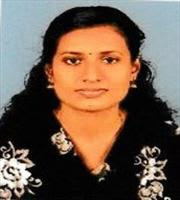INTIMATION FOR BODHIKA SEMINAR - 25/01/2023
DEPARTMENT OF KAUMARABHRITYA
NAME OF FIRST PRESENTEE: Dr RAKHI KRISHNAN
DISSERTATION TITLE: EFFECT OF KALYANAKA AVALEHA CHOORNA ALONG WITH GHRITA (GHEE)IN LANGUAGE IMPAIRMENT OF CHILDREN WITH AUTISM AGED 3-6YEARS
TIME: 2:00-4:00 PM
VENUE: OFFLINE AT COLLEGE AUDITORIUM
The essential features of Autism Spectrum Disorders(ASD) are
persistent impairment in reciprocal social communication and interaction and
restricted, patterns of behaviour or interests. Failure to meet the language
development milestones is one of the earliest red flags of Autism. There will
be language delay; regression or loss of use of speech. Receptive language
often lags behind expressive language in ASD. At one end, there are children with Autism
whose vocabulary, grammatical knowledge, and articulation skills are within the
normal range of functioning, while at the other end, a significant proportion
of the population remains essentially nonverbal. Marked changes can be observed
if ayurvedic formulations that can stimulate the language areas of the brain
can be given to such children.
A clinical study is designed to evaluate the effect of Kalyanaka
Avaleha Choorna in a dose of 3 gm, twice daily, after food, with ghrita
in language impairment of children with autism aged 3-6 years for a period
of 60 days. The formulation Kalyanaka Avaleha Choorna is
explained in the Bhaishajya Ratnavali-
Swarabheda Chikitsa and Vatavyadhi Chikitsa
and also Chakradatha –Vatavyadhi Chikitsa.
The study is conducted as an Interventional assignment with Pre and Post-test. Children of both sex of the age group 3-6 years having qualitative impairment in the areas of language development or communication skills, social interactions, and reciprocity satisfying the DSM – 5 attending the OPD of Kaumarabhritya will be selected for the study. Assessment for Autism is done using the tool CARS (Childhood Autism Rating Scale) & language age evaluation is done using the tool Receptive-Expressive Emergent Language Scale (REELS) by a Speech and language pathologist. Both assessments will be taken before and after the study. A Further assessment will be done after 1 month of follow-up period. Data will be analysed using paired t test.
NAME OF SECOND PRESENTEE: Dr REENU MATHEW
TIME: 2:00-4:00 PM
VENUE: OFFLINE AT COLLEGE AUDITORIUM
Epilepsy
is a disorder of brain characterized by an enduring predisposition to generate
epileptic seizures. It includes recurrent, episodic, paroxysmal, involuntary
clinical events associated with abnormal electrical activity from the neurons.
Intractable epilepsy is defined as occurrence of one or more seizures per
month, despite a trial of the correct anti- epileptic drugs (AEDs) in adequate
doses for 2 years. Epilepsy is being managed by modern medicine with the help
of anti-epileptic drugs but some remain intractable or refractory for
management. Ayurvedic intervention along with AED is expected to give promising
result.
A clinical study is
designed to evaluate the effect of Kalyanaka
Churna in intractable epilepsy in children
between 3-12 years. Kalyanaka Churna is
described in Bhavaprakasa, madhyama
khanda, Apasmara adhikara.The
study will be conducted as an interventional assignment, pre and posttest. The
study will be carried out in OutPatient Department of Kaumarabhritya, Govt.
Ayurveda College Hospital for Women and Children, Thiruvananthapuram. Children
of both sex of age 3-12 years, of population 12 who are affected with epilepsy
and not effectively managed by AEDs will be included in the study, screened and
assessed using Hague Seizure Severity Scale, Electroencephalogram and Quality
of life in childhood epilepsy. Then the trial drug Kalyanaka Churna will be
given in a dose of 1.5gm for the age group 3-6 years and 2.5gm for the age
group 7-12 years, twice daily after food with warm water as anupana. The trial drug will be given
for a period of 90 days. The participants will be allowed to continue the AEDs
they are taking in the same dose throughout the study period. The participants
will be assessed before and after treatment using Hague Seizure Severity Scale,
Electroencephalogram and Quality of life in childhood epilepsy. Data will be
collected and statistically analyzed using Wilcoxon signed rank test and
Paired-t test.



No comments:
Post a Comment